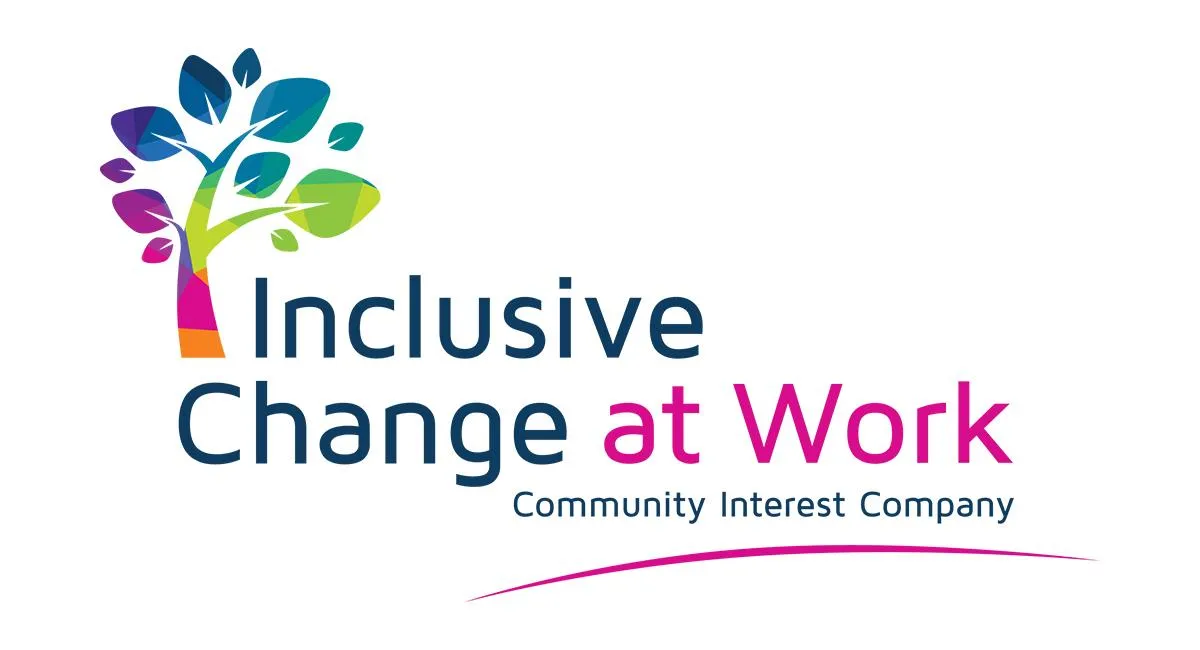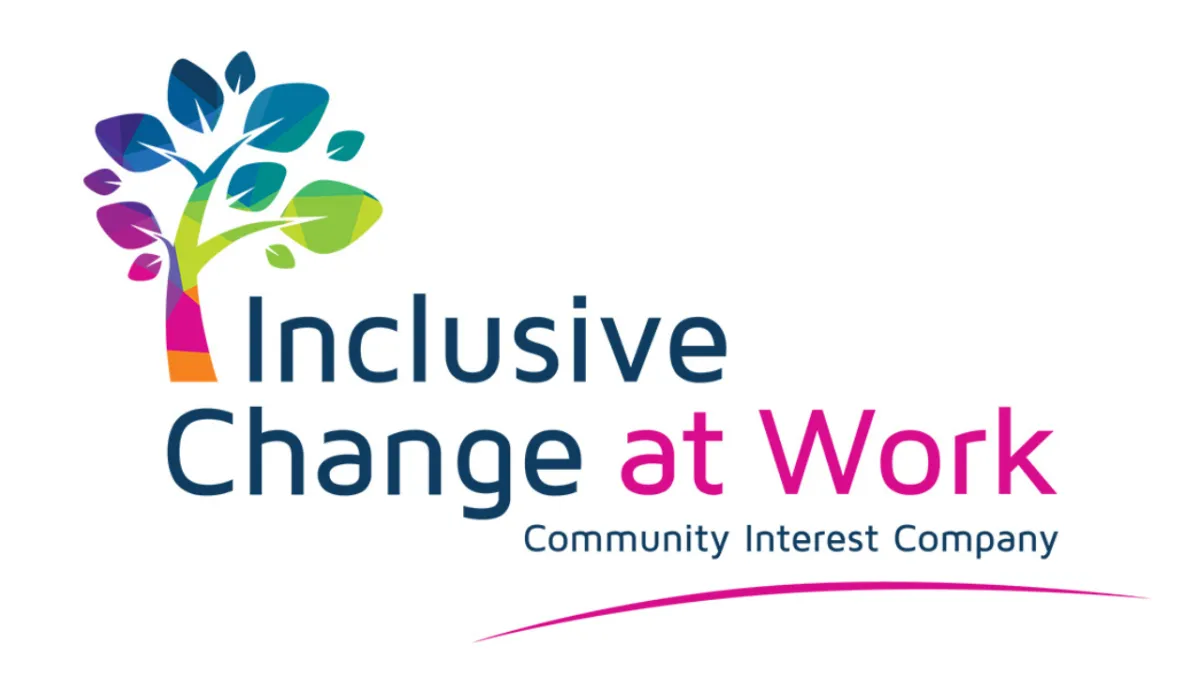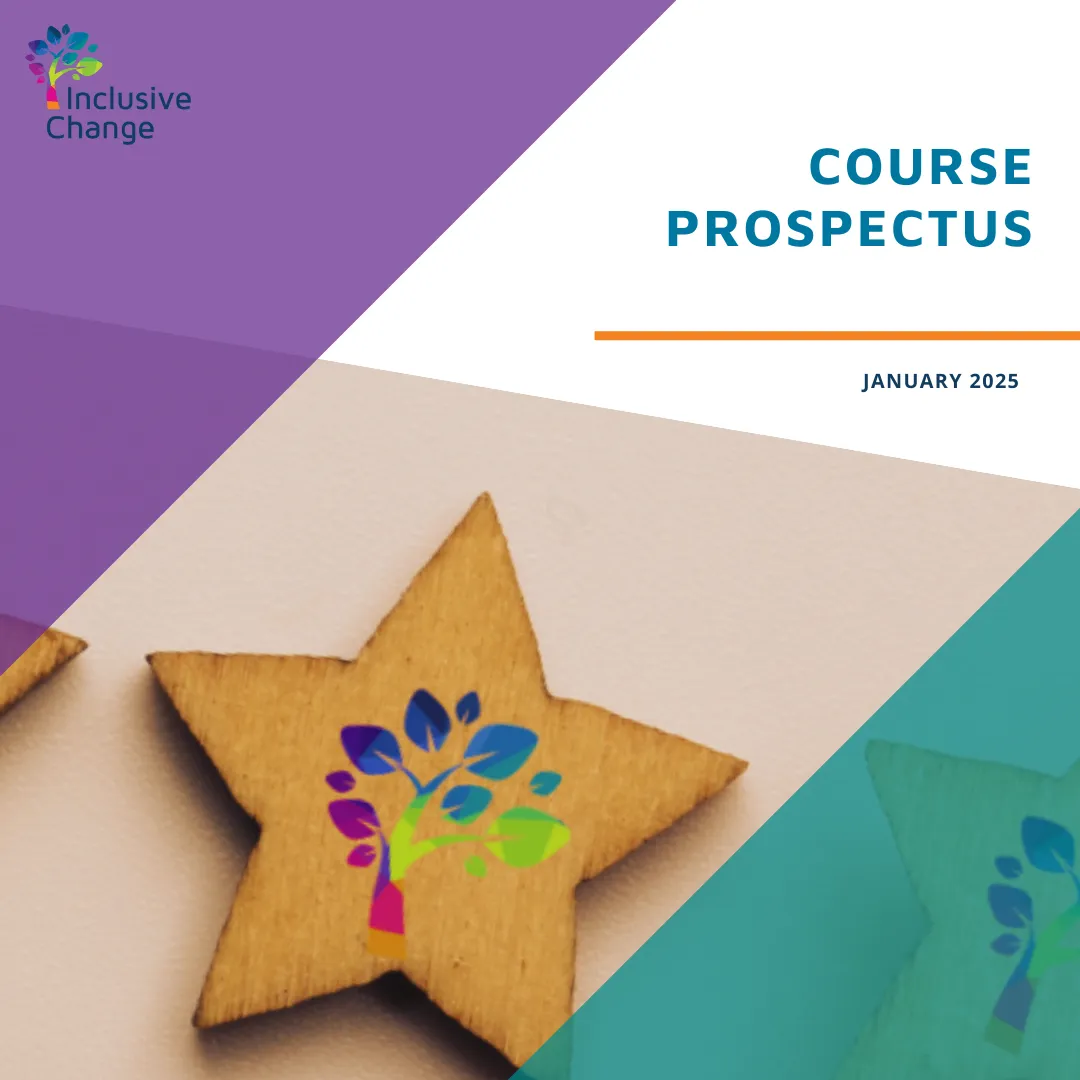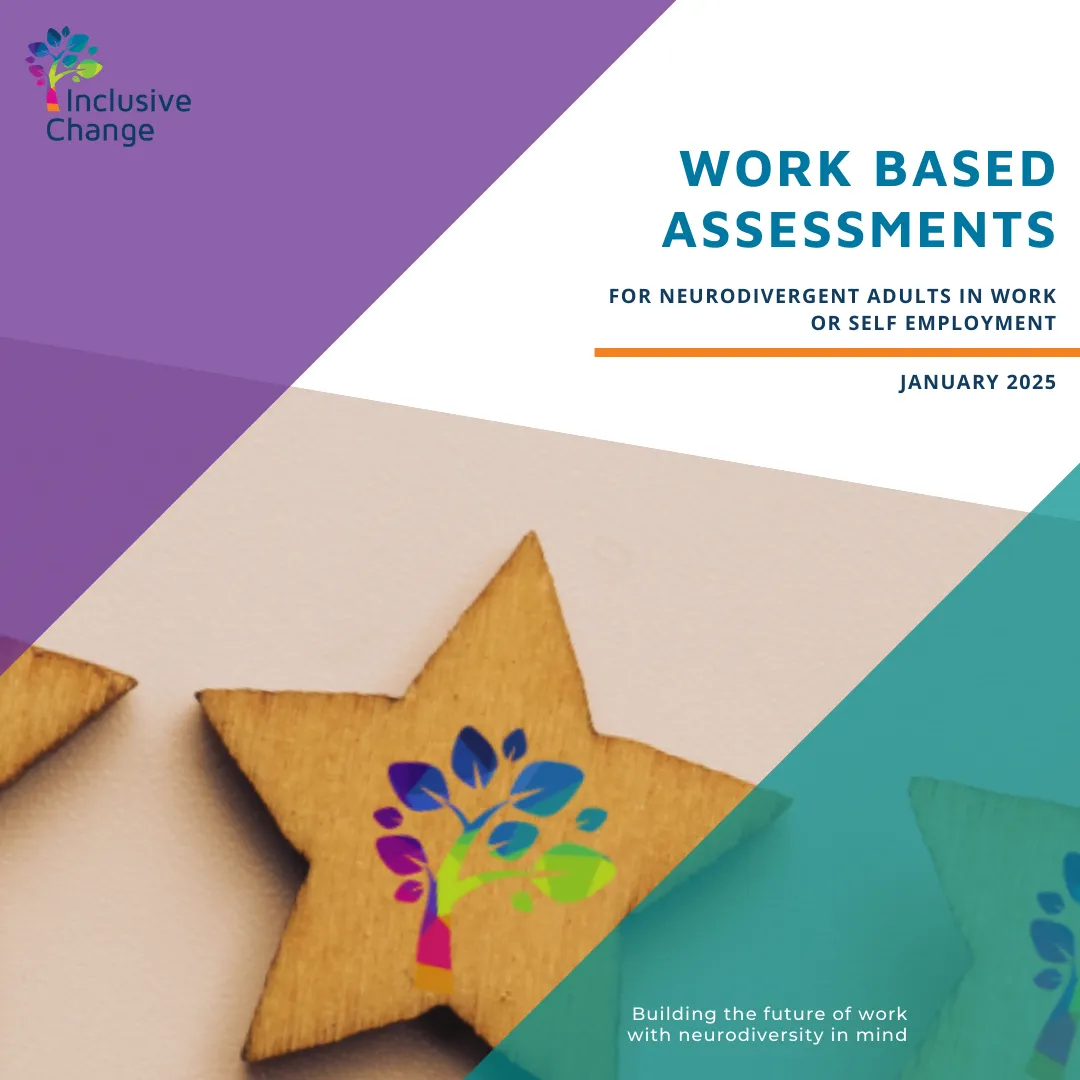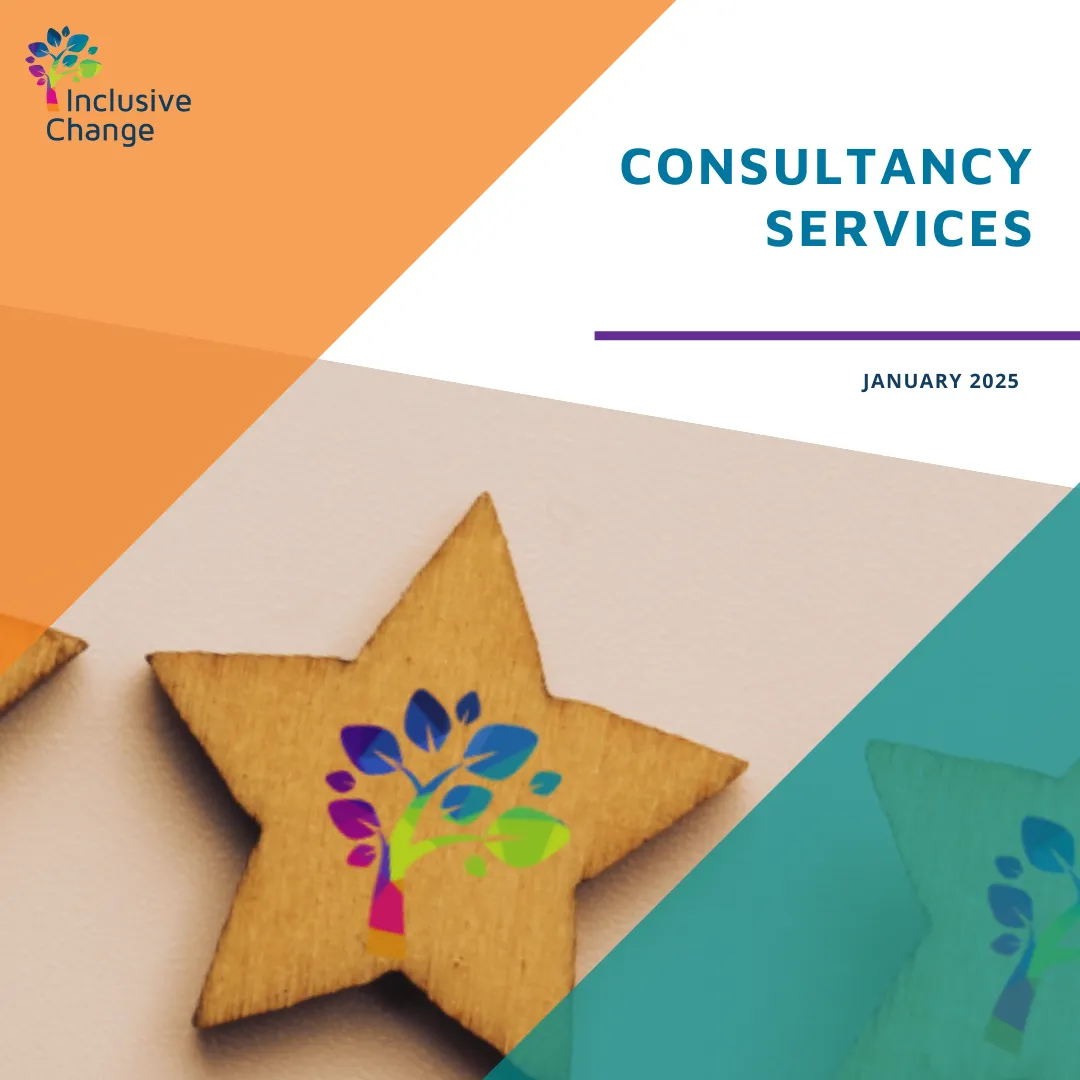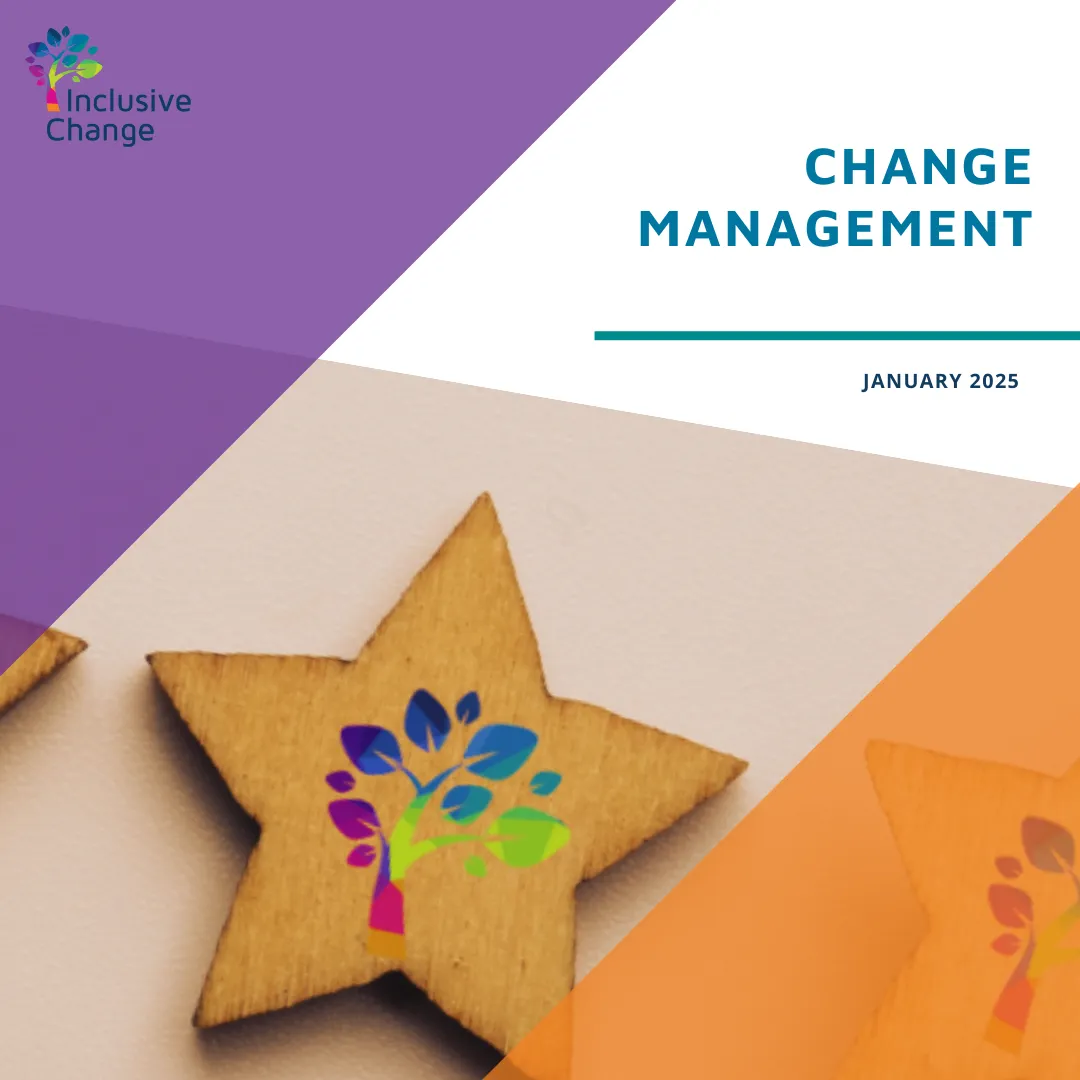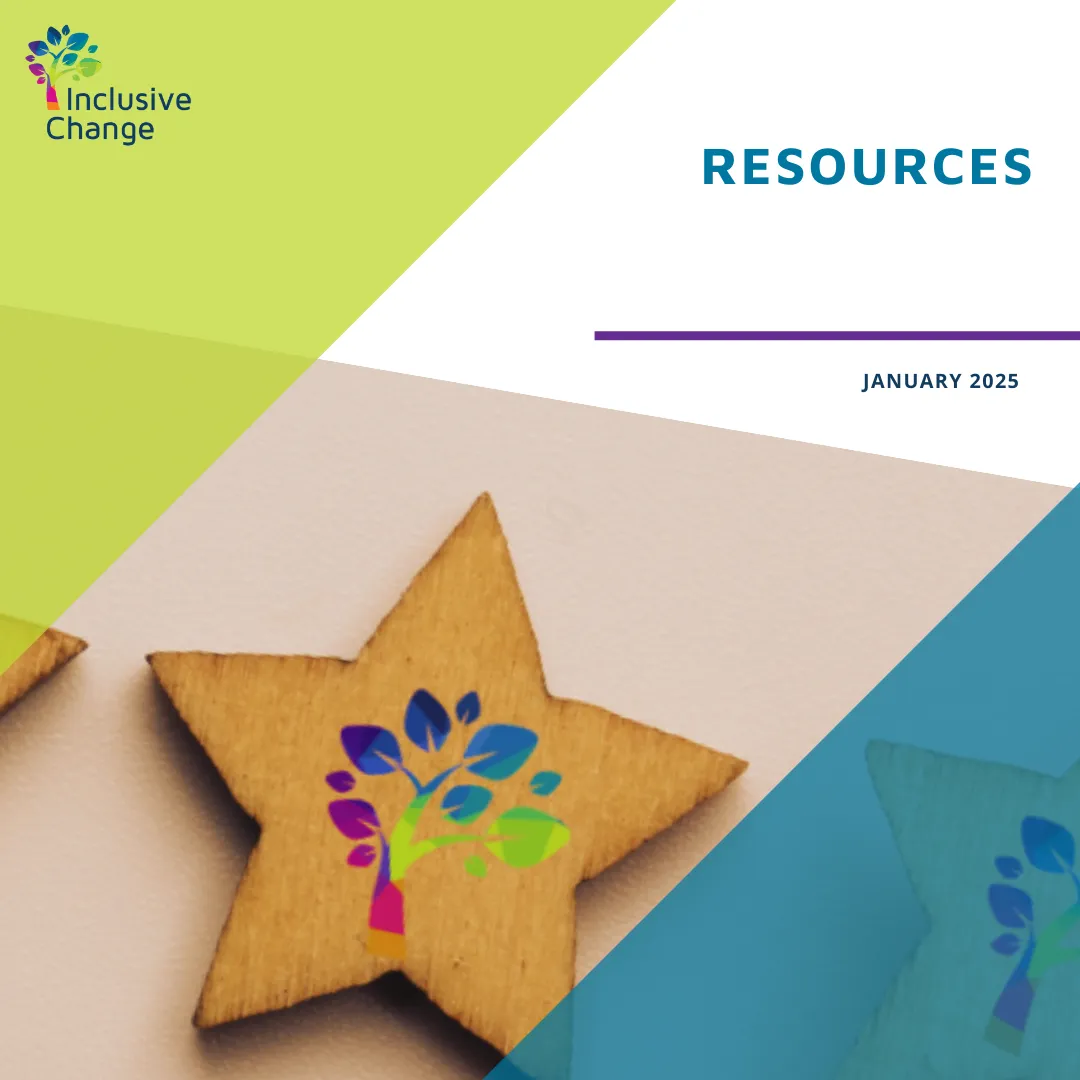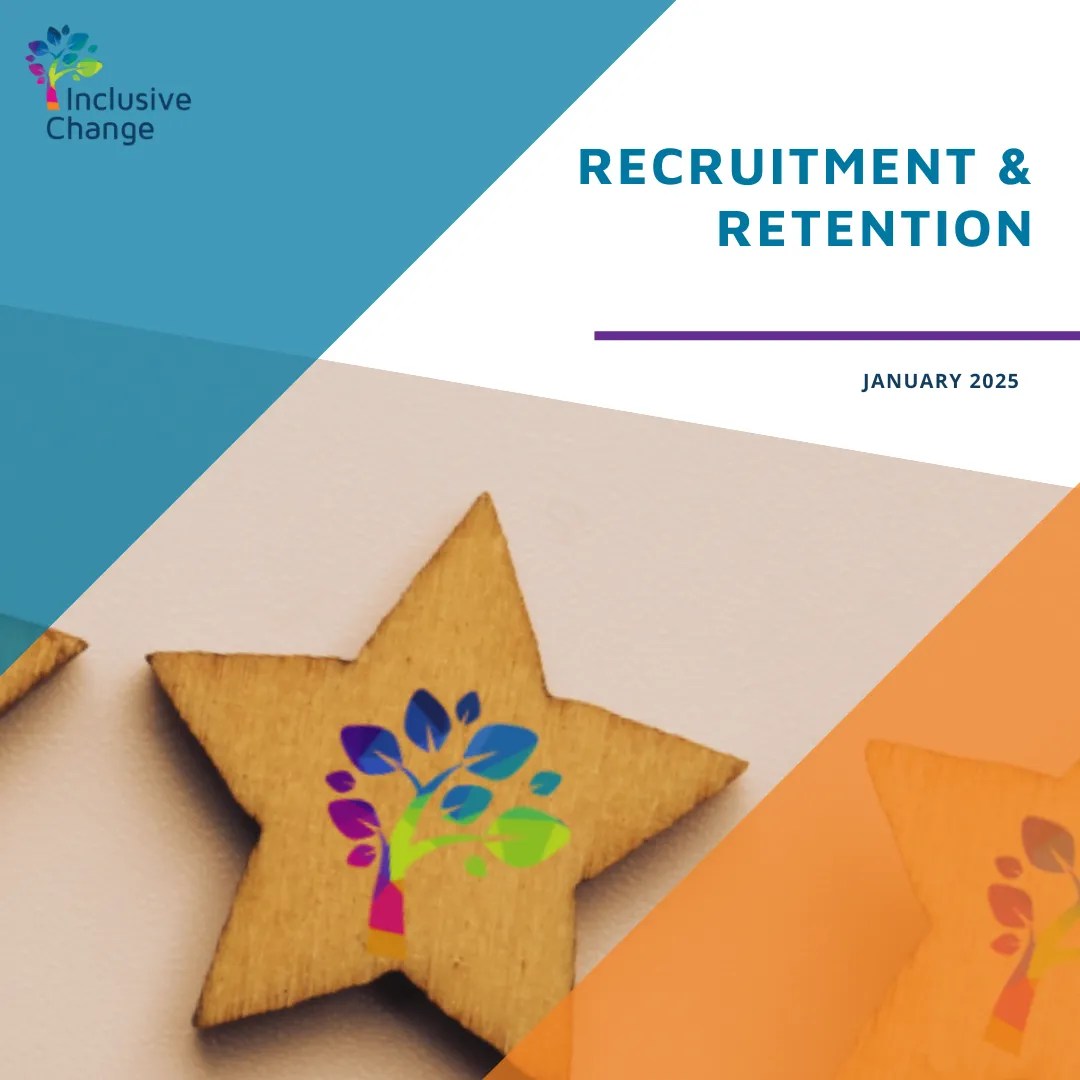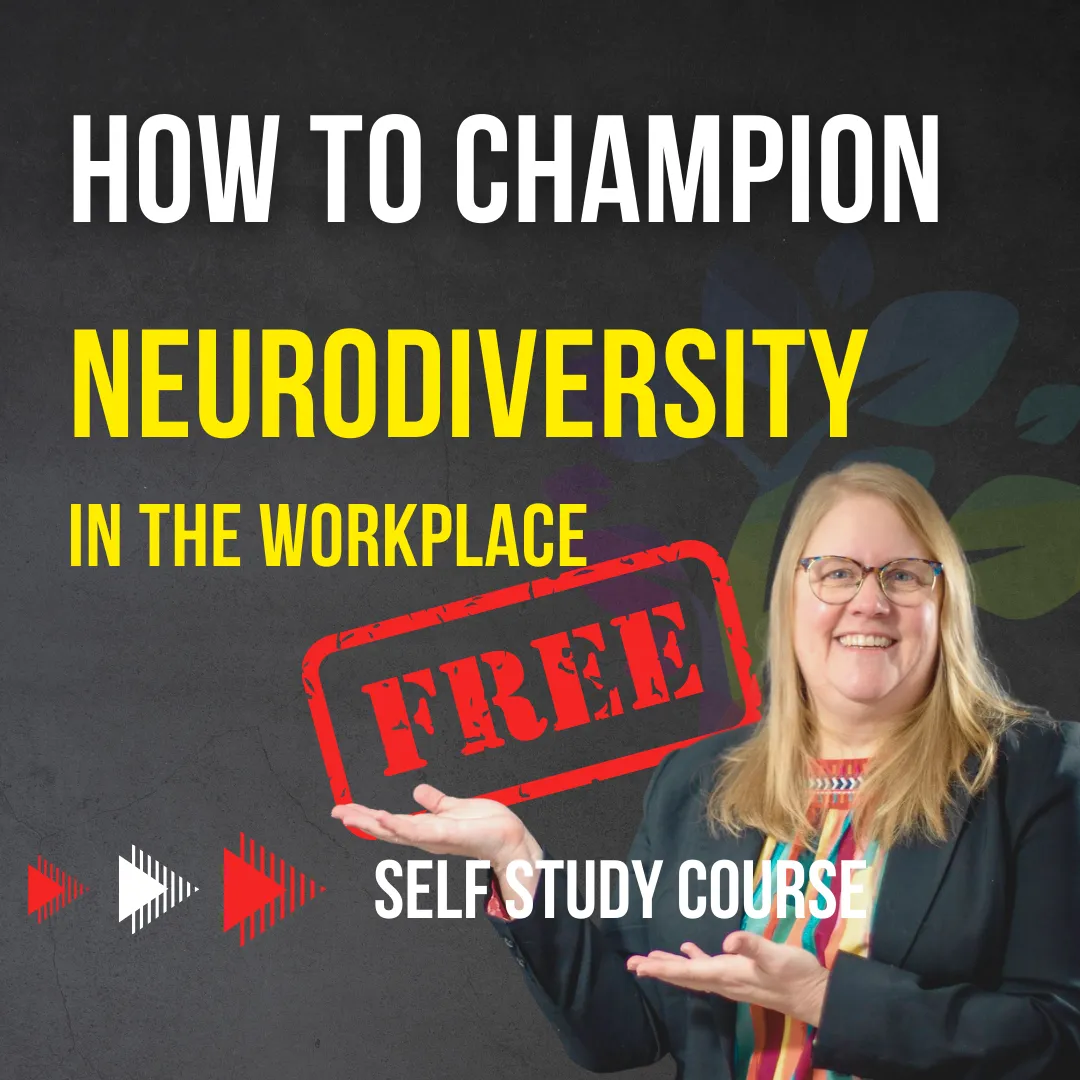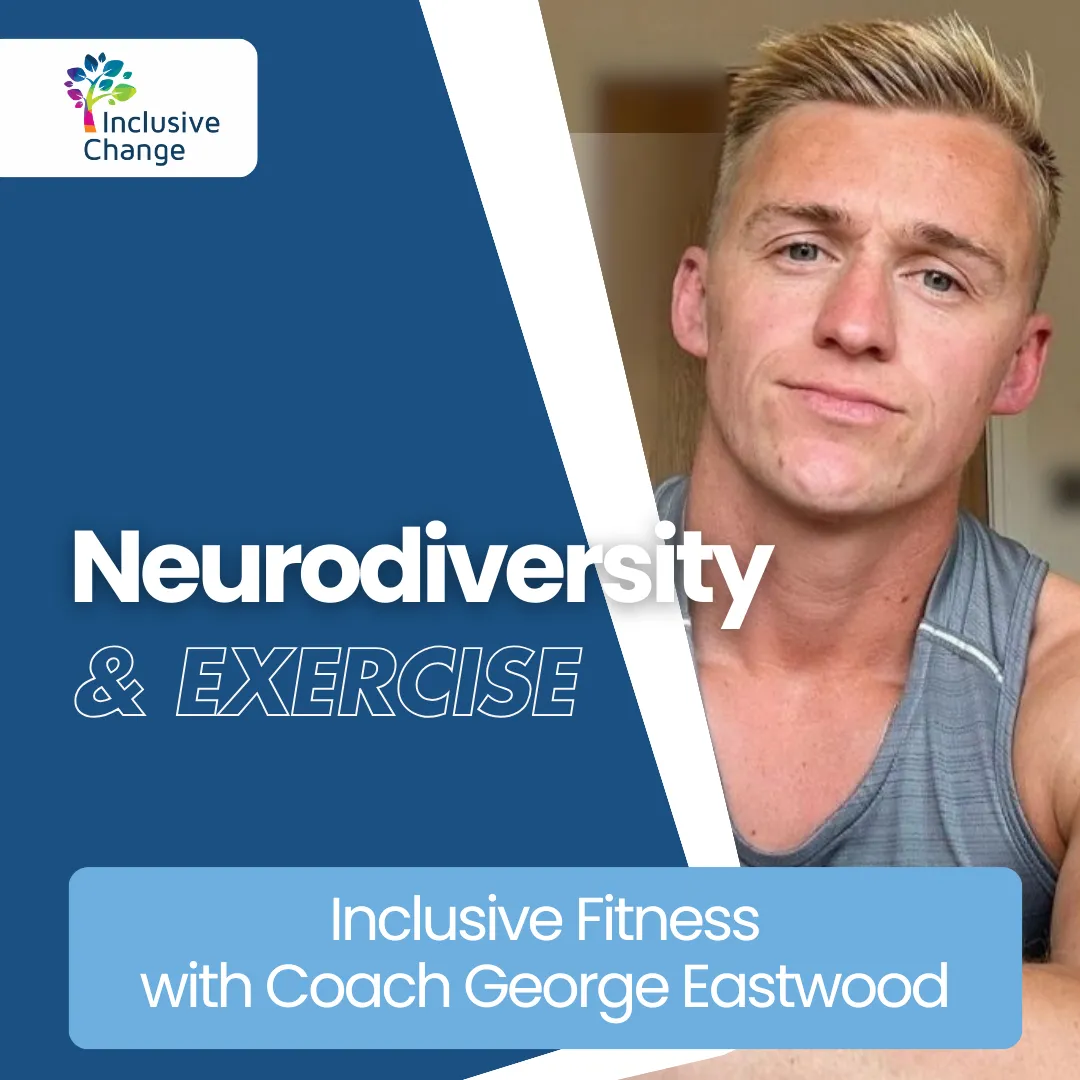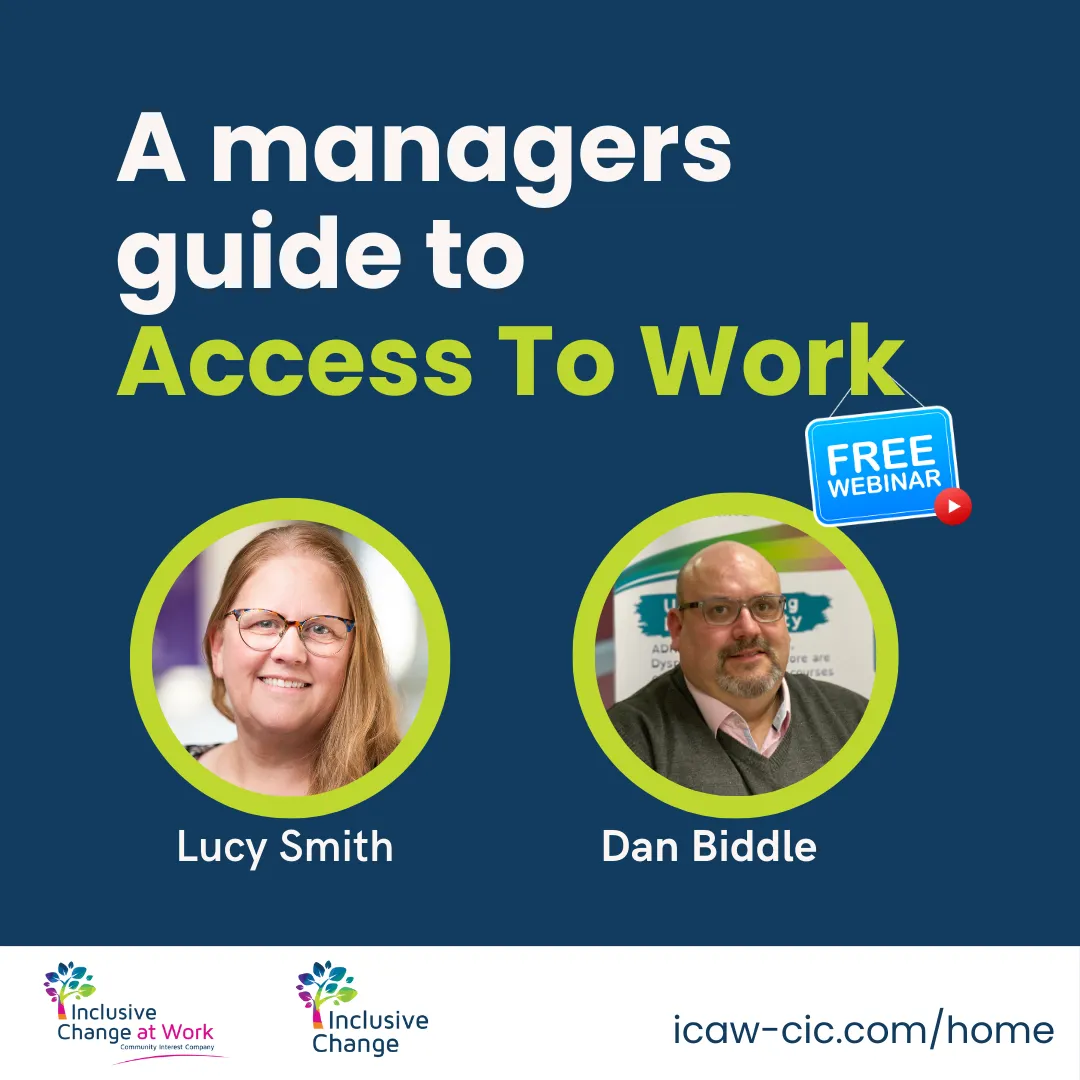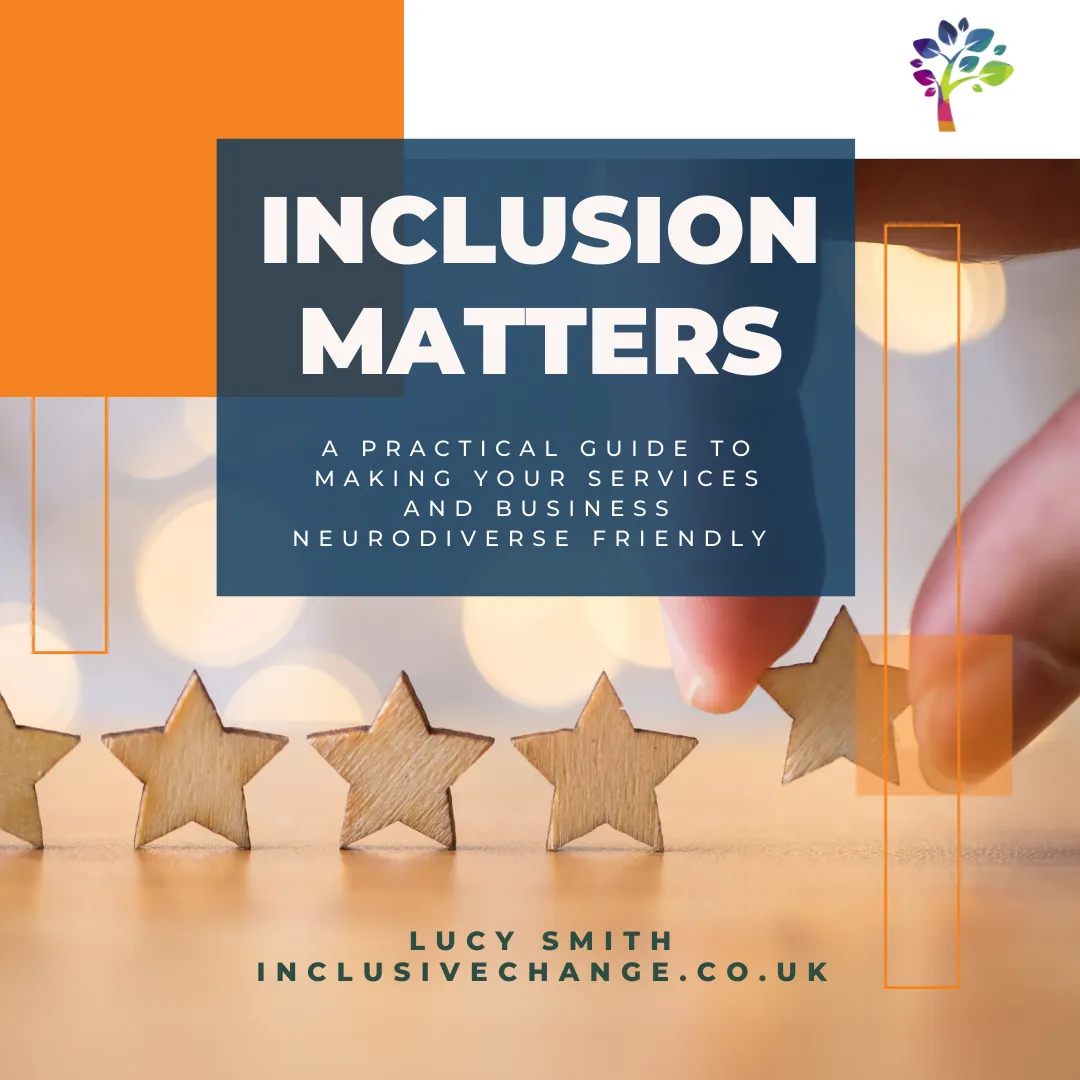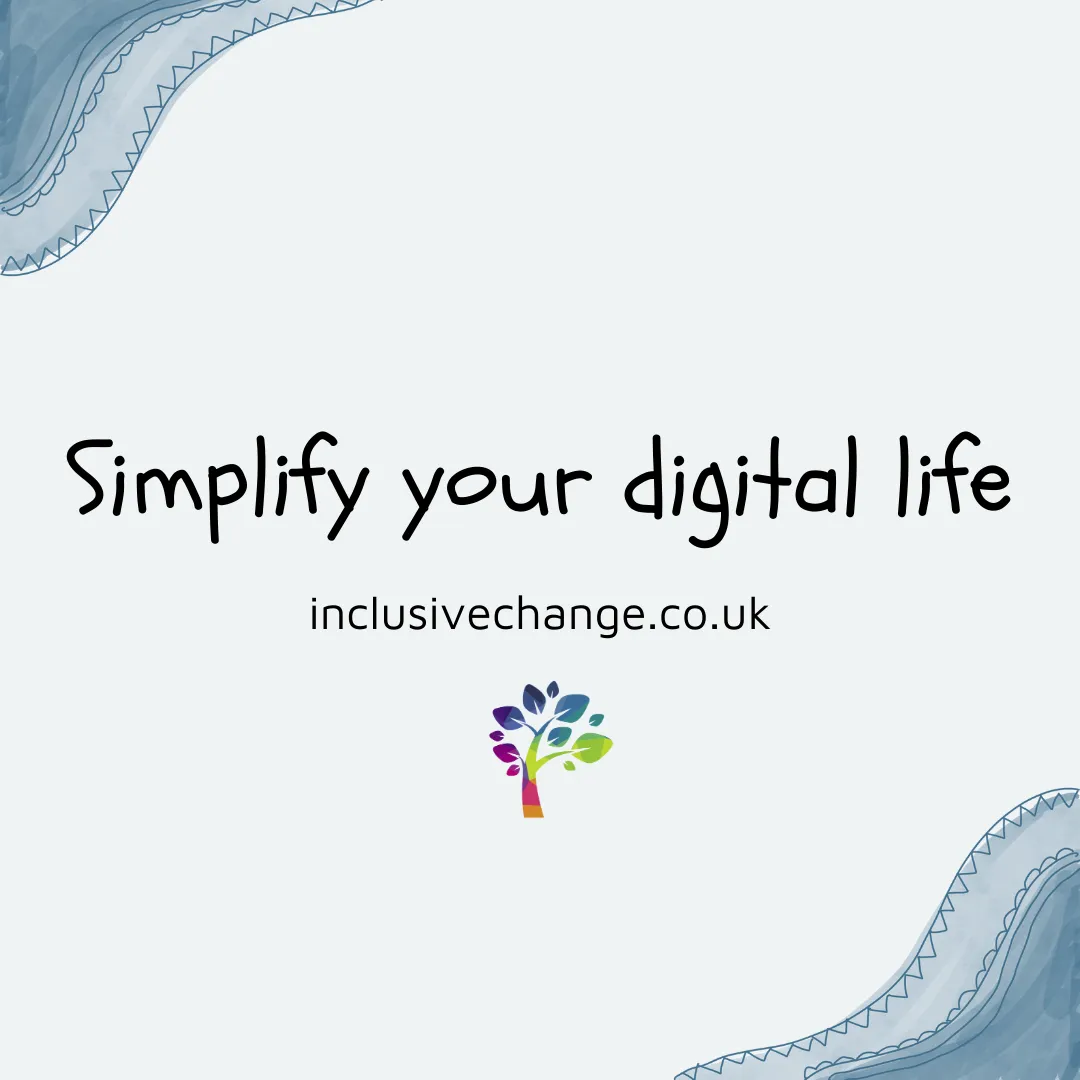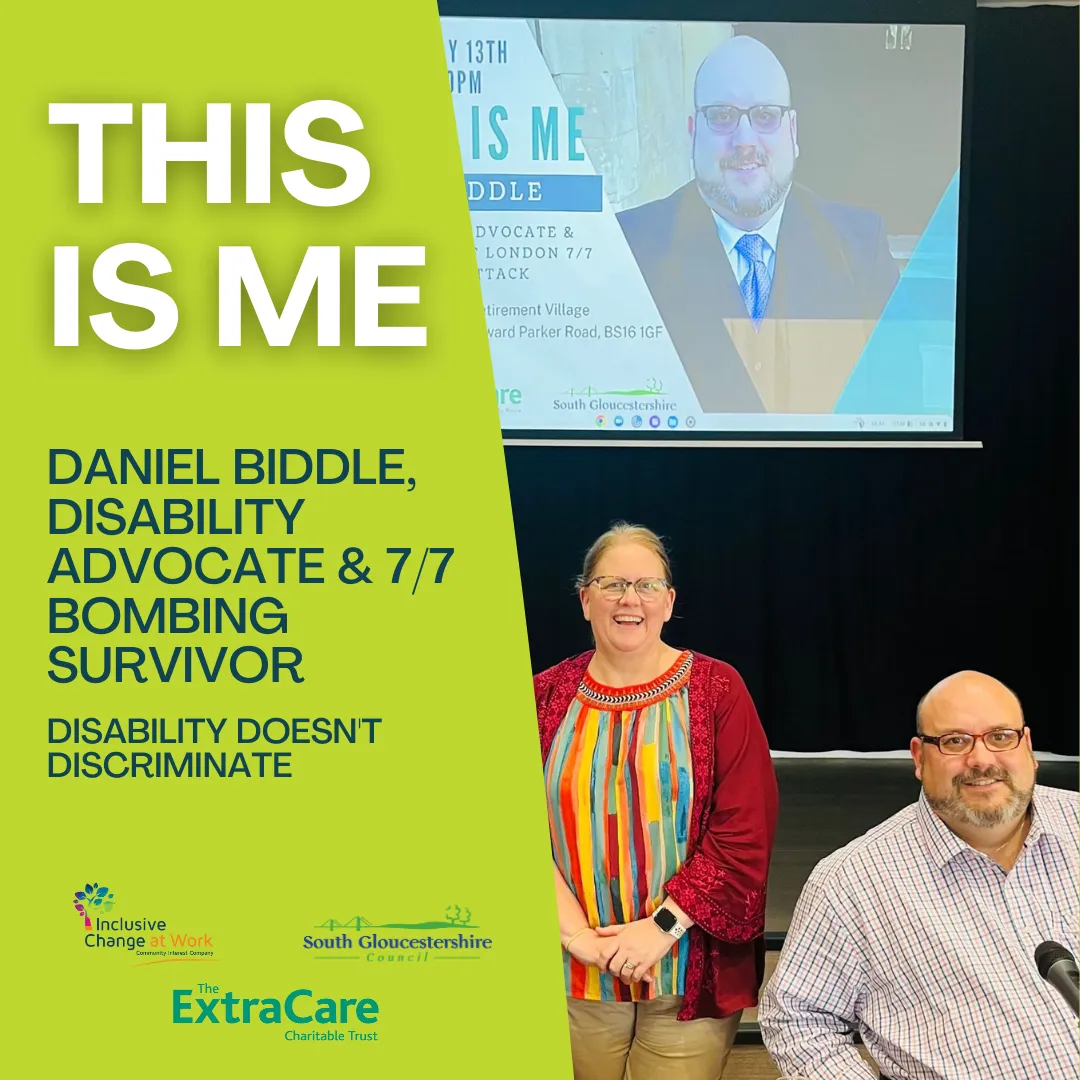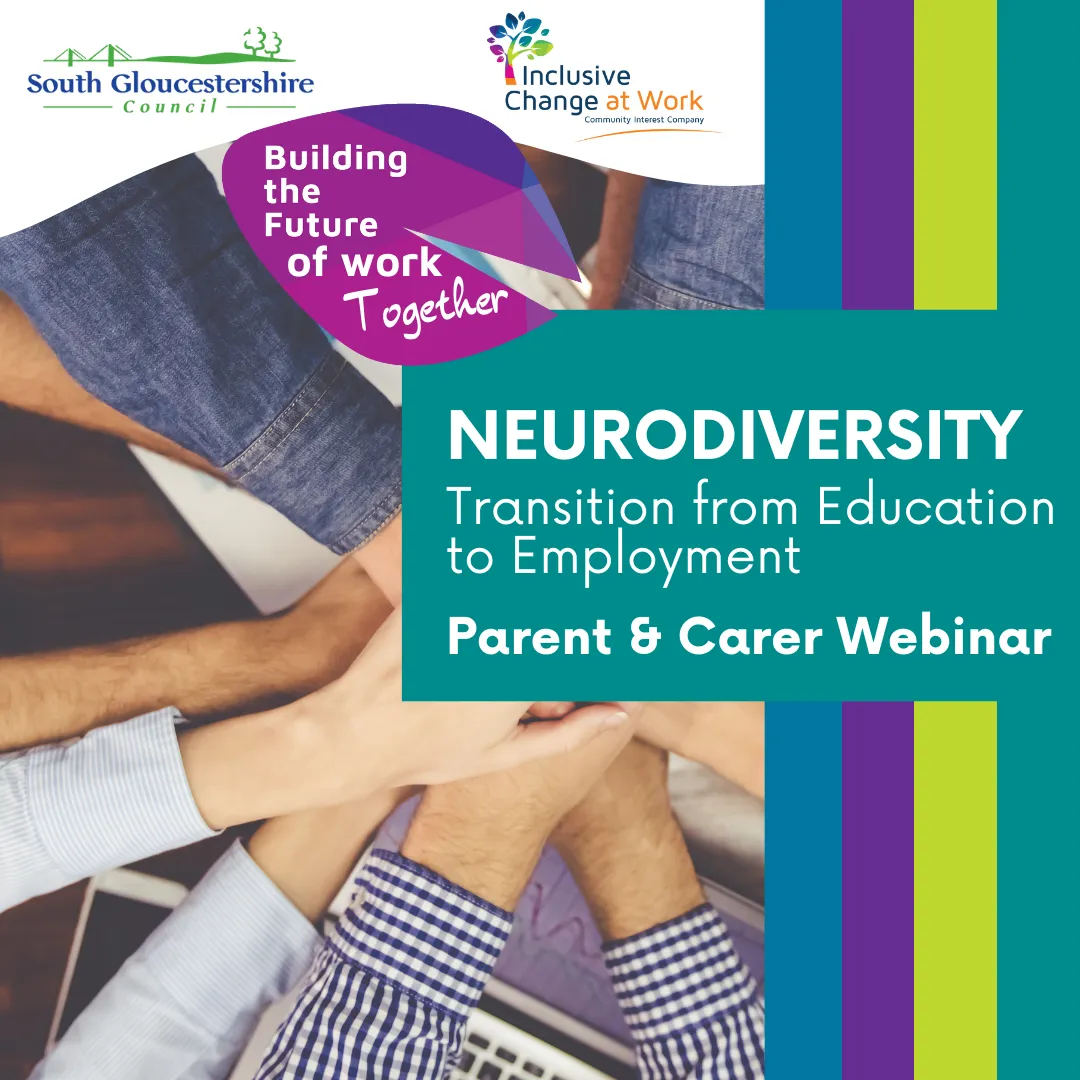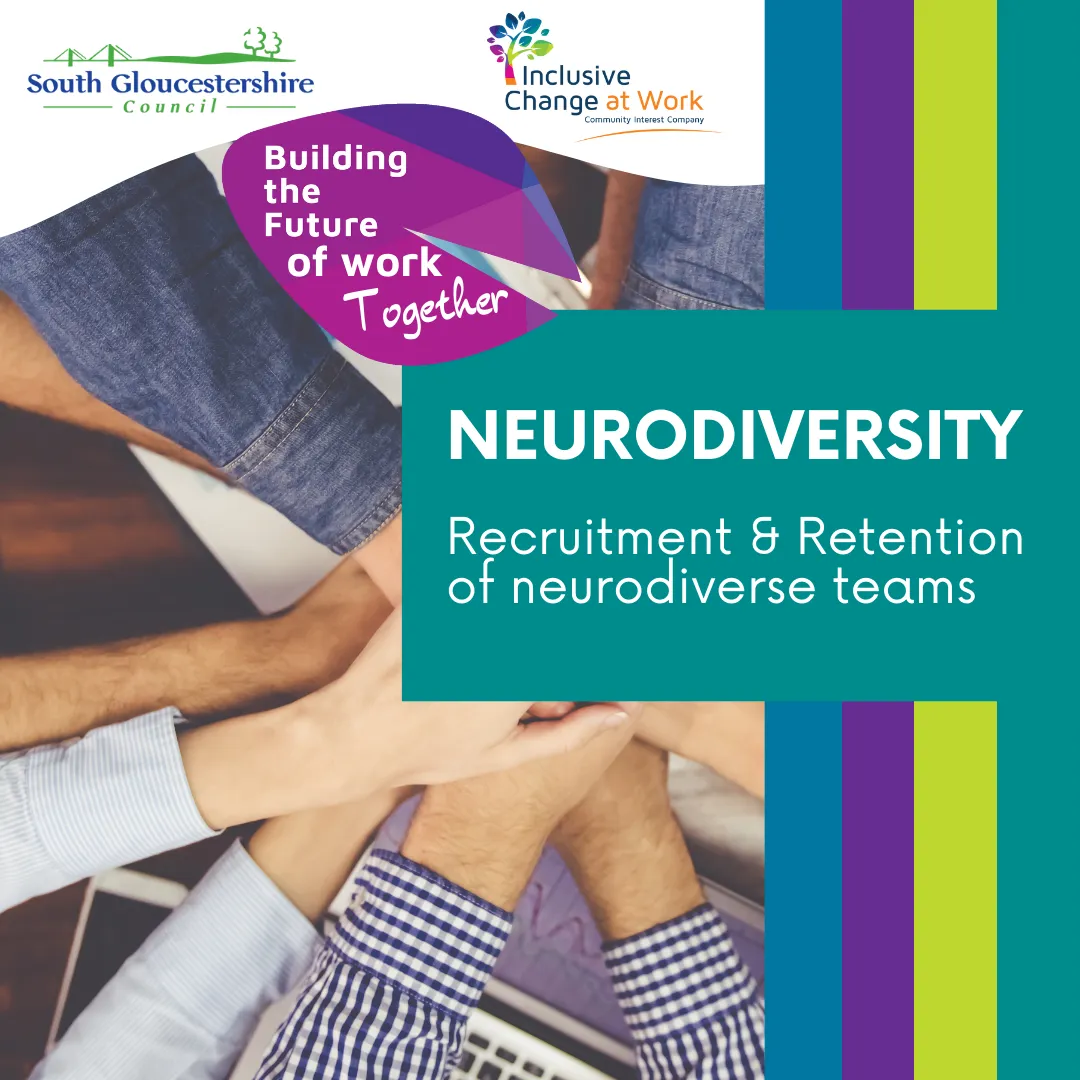Inclusive Change at Work
In the community
We want to thank you for attending our workshops in Emersons Green Village Hall, made possible with funding from Emersons Green Town Council. It has been wonderful to meet so many people and spark meaningful conversations about Inclusion.
We offer a variety of ways to collaborate and support your journey. Be sure to join our mailing list to stay informed about our latest projects, exclusive offers, and exciting initiatives.
To help you take your next steps, we’ve curated this page with valuable resources, insights, and new projects, designed to inspire and empower your conversations about neurodiversity. Dive in, explore, and Keep the Conversation Going!
A Recap of the Slides & Discussions
Let's Talk About Neurodiversity: Building an Inclusive Community Together
Date: 16th January 2025
Speaker: Lucy Smith
Key Takeaways From The Evening
Neurodiversity is Common but Overlooked – 1 in 7 people in the UK are neurodivergent, yet many face barriers in employment and inclusion.
Workplace Challenges Persist – Long assessment wait times, lack of disclosure (76%), and limited employer focus (49%) highlight the need for change.
Inclusive Workplaces Matter – Reasonable adjustments and open discussions help create supportive environments.
Younger Generations are Driving Change – 53% of Gen Z identify as neurodivergent, making inclusion more important than ever.
Action is Key – Safe spaces, advocacy, and meaningful support systems help neurodiverse communities thrive
Supporting Neurodivergent Families
Date: 30th January 2025
Speakers: Lucy Smith & SGPC
Key Takeaways From The Evening
Inclusive Spaces Foster Support – Creating environments where neurodivergent individuals feel safe and valued is essential for meaningful inclusion.
Resilience is Key – Building resilience through learning, coping strategies, and supportive frameworks helps neurodivergent families navigate challenges.
Workplace and Education Accessibility Matters – Reasonable adjustments in schools and workplaces ensure neurodivergent individuals can succeed without unnecessary barriers.
Open Dialogue Encourages Understanding – Safe spaces for discussion help break stigma, allowing neurodivergent individuals and allies to share experiences and seek support.
Ongoing Support and Resources Make a Difference – Access to helpful resources, events, and advocacy networks empowers neurodivergent communities to thrive.
Building the Future of Work With Neurodiversity in Mind
Date: 6th February 2025
Speakers: Lucy Smith & Andy Jackson
Key Takeaways From The Evening
Neuroinclusion is a Business Advantage – Embracing neurodiversity leads to increased innovation, productivity, and employee retention. Yet, many workplaces unintentionally create barriers for neurodivergent employees.
The Social Model of Disability Matters – Disability is not about the individual but the barriers in their environment. Simple workplace adjustments, like sensory-friendly spaces and flexible communication styles, can unlock neurodivergent talent.
Inclusion is Needed at Every Career Stage – From recruitment to promotion, neurodivergent employees face unique challenges. Clear job descriptions, structured onboarding, and strengths-based performance reviews help ensure fairness.
Recruitment & Progression Need Reform – Traditional hiring methods often exclude neurodivergent talent. Companies should prioritize skills-based hiring, alternative application methods, and clear promotion pathways.
Actionable Steps Make a Difference – Businesses should start by reviewing hiring practices, improving workplace accessibility, investing in mentorship, implementing inclusive policies, and increasing diverse representation
Menopause and Neurodiversity
Date: 20th February 2025
Speakers: Kirsty Brown, Fitness for Life, & Lucy Smith
Key Takeaways From The Evening
Menopause Can Intensify Neurodivergent Traits – Changes in hormones can amplify difficulties with memory, focus, sensory sensitivity, emotional regulation, and fatigue, making daily life more challenging.
Dopamine & Cognitive Support Are Crucial – Activities like exercise, music, creative outlets, and structured routines help maintain dopamine levels, while a diet rich in protein, omega-3s, and key micronutrients supports brain function.
Self-Regulation Strategies Help Manage Symptoms – Sensory tools, mindfulness techniques, and cognitive-behavioral strategies can help counteract brain fog, mood swings, and attention difficulties.
Hormonal & Cognitive Support Can Be Beneficial – Hormone Replacement Therapy (HRT) may help some individuals, while structured routines, planners, and reminders aid in managing cognitive challenges.
Community & Environmental Adjustments Matter – Reducing sensory overload, seeking peer support, and creating neuroinclusive workplace environments can improve well-being and productivity for neurodivergent individuals going through menopauseHere's some stuff
Digital Wellbeing for Young People
Date: 6th March 2025
Speakers: Lucy Smith & Emily Chittell
Key Takeaways From The Evening
The Impact of Digital Overuse – Excessive screen time, especially on social media, can negatively affect mental health, as seen in Owen’s experience of using their smartphone to escape emotions but ultimately worsening their mood.
Balancing Digital Consumption – It's important to be mindful of how digital tools influence our emotions and well-being, avoiding over-reliance on social media for coping.
Creating Digital Boundaries – Simplifying digital life can improve mental health, making space for healthier habits and real-world connections.
Support and Adjustments – Neurodivergent individuals may benefit from reasonable adjustments and access-to-work accommodations to create a more balanced digital experience.
Reasonable Adjustments and Access to Work for Neurodiverse Minds
Date: 20th March 2025
Speakers: Lucy Smith & Support Team
Key Takeaways From The Evening
Legal Obligation for Employers: Under the Equality Act 2010, employers must make reasonable adjustments to ensure that disabled employees are not at a substantial disadvantage in the workplace.
Defining Reasonable Adjustments: Adjustments can include changes to the workplace, working arrangements, task execution, or providing necessary support and equipment.
Disclosure and Employer Responsibility: Employees need to disclose their disabilities for employers to act on their duty to make adjustments. Employers are not obligated to assume or act on ambiguous signs of a disability.
Balancing Adjustments with Job Requirements: Adjustments should create fairness without lowering the essential standards of a role. Selection criteria should be inclusive but still maintain job integrity.
The Business and Cultural Benefits: Implementing reasonable adjustments fosters an inclusive workplace, reduces staff turnover, and leads to broader innovations that benefit all employees

Recommended Groups and Services
Articles & Reports
30% More Productive: The ROI of a neurodiverse workforce - 2023
New data suggests that 15% to 20%
of the population may be neurodivergent – up from estimates of 5% to 10% just five years ago. This shift underscores the critical need for employers to broaden the horizons of their diversity, equity and inclusion (DEI) efforts to encompass neuro-inclusion
Half of neurodivergent employees miss work due to lack of support - March 2024
Half of neurodivergent employees have taken time off work due to their neurodivergence, a 5% rise from last year, according to City & Guilds’ Neurodiversity Index. The report also found that 36% received no workplace support, and 18% didn’t know where to seek help.
New Survey by The Harris Poll Reveals Workplace Stigma for Neurodivergent Employees - May 2024
Understood.org, a leading nonprofit empowering more than 70 million neurodivergent people who have learning and thinking differences, such as ADHD and dyslexia, today announced the results of a Harris Poll of over 2,000 U.S. adults ages 18+. The poll shines a light on the challenges and opportunities facing people with learning and thinking differences, such as ADHD, dyslexia, or dyscalculia, in the workplace.

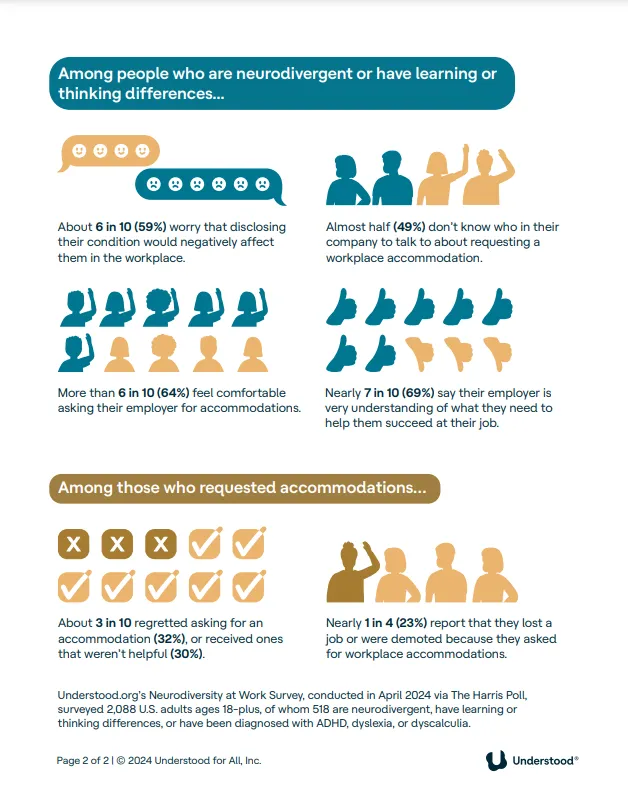
CIPD Neuroinclusion at work report 2024
The reality of neurodiversity means that every interaction at work takes place between people with different brains – yet, typically, very few organisations are thinking about neurodiversity or neuroinclusion. This represents a significant missed opportunity for organisations looking to address their key talent priorities at the same time as addressing inequalities at work faced by neurodivergent people
Meet Your Hosts and Expert
Speakers

Lucy Smith
Lucy is the founder of Inclusive Change and Inclusive Change at Work CIC. She has lived experience of neurodiversity and has been working in the area of neurodiversity for 6 years. Lucy combines a career in change management in internationally renowned organisations with experience in education to create thoughtful and inspiring training and consultancy services.

Daniel Biddle
Daniel is a highly experienced accessibility consultant with extensive experience of disability. Daniel has particular expertise in acquired disability, including acquired neurodiversity. He established the National Disability Employment & Advisory Service in 2022 and focuses on supporting neurodivergent young people & adults into employment.

Kirsty Brown
Kirsty is a proactive, self-motivated individual with managerial experience in motivating teams and providing exemplary service. As a personal trainer and women's health coach, I use an empathetic approach to set and monitor achievable goals, adapting strategies to support clients through life's challenges. My expertise in menopause coaching includes workshops that empower women to confidently make lifestyle changes and navigate difficult times.

Vicky Henderson
Vicky is a multi-award-winning coach, mentor, speaker and trainer. She specialises in working with young people (11-24yrs) helping them grow in confidence, feel happy and generate hope and excitement for a better future.
In addition to working with young people, Vicky also works with parents, schools and employers, to ensure that all young people are afforded the support and help they need to thrive.

Andy Jackson
Andy is a Non-Executive Director of Inclusive Change at Work CIC, as well as an entrepreneurial and leadership coach and a dedicated advocate for neurodivergent individuals.
As a parent to a young adult navigating life with undiagnosed neurodivergence, Andy brings both professional expertise and personal insight to their work.
A skilled coach, facilitator, and trainer, Andy is passionate about enhancing organisational performance and supporting teams to thrive.
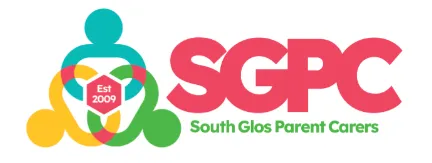
South Glos Parent Carers
South Glos Parent Carers (SGPC), the local parent carer forum that represents & supports parent carers of children and young people with Special Education Needs and Disabilities (SEND) in South Gloucestershire. Driven by a desire to make a difference for every SEND family in South Gloucestershire, SGPC attend meetings across the education, health and social care sectors to ensure service providers understand the challenges families face, so that positive changes can be made. SGPC also offer support to parent carers, via online and drop-in support sessions as well as workshops on a range of SEND topics. The SGPC team are all parent carers themselves, so they truly understand the SEND journey & challenges. From their personal experiences & those of their community, they have gained valuable insight, information and a wealth of SEND knowledge.
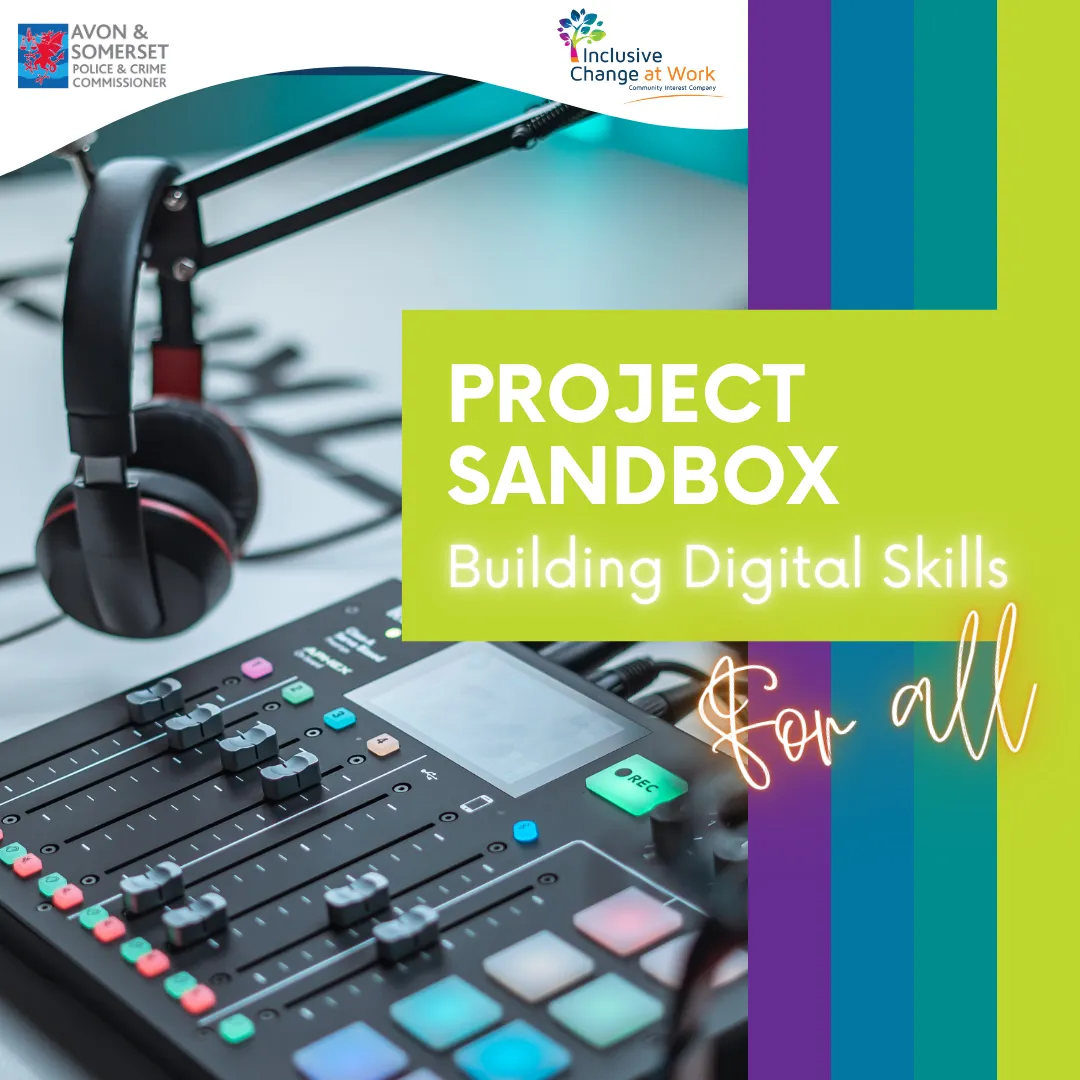
Discover Project Sandbox: Shaping a Safer Digital Future
Inclusive Change at Work CIC proudly presents
Project Sandbox, a ground-breaking initiative designed to champion digital safety and disability inclusion.
In collaboration with the Avon & Somerset Police & Crime Commissioner, we’re creating an engaging series of podcast and radio episodes that dive deep into building safer digital spaces for disabled and neurodivergent individuals.
We invite you to be part of this important conversation and join us in driving meaningful change.
Stay tuned, get involved, and let’s make the digital world a place for everyone.
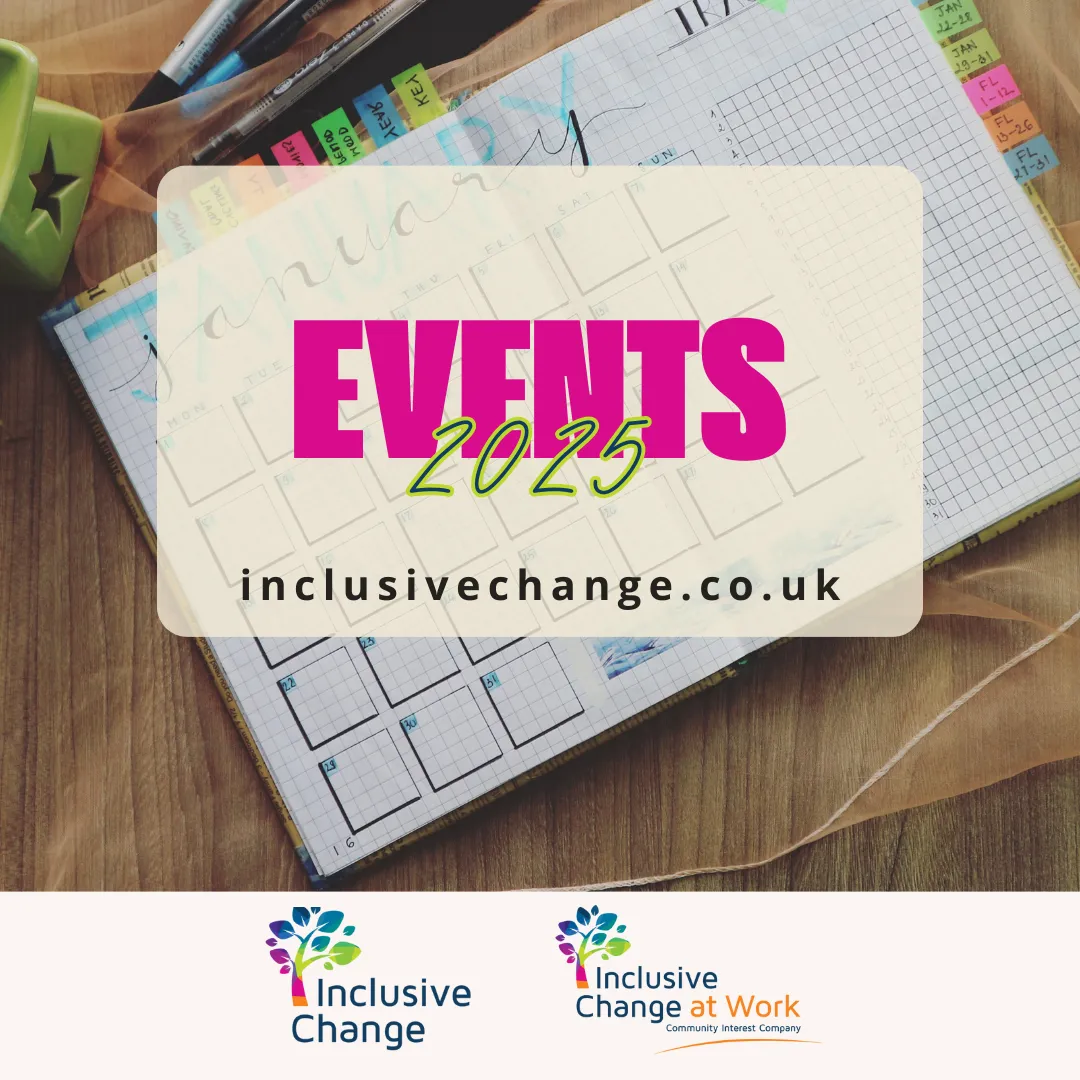
Important Dates in Our Calendar
June 2025
2nd - Understanding & Empowering ND in Sport - Glos. F.A
9th-10th - Festival of Sustainable Business - Bristol Beacon
12th - F'Up Exeter - The Bootlegger, Exeter
July 2025
22nd - F'Up Bristol - The Square Club, Clifton
Free Resources - Guides, Webinars & Courses
Check Out Our Latest Blog Posts
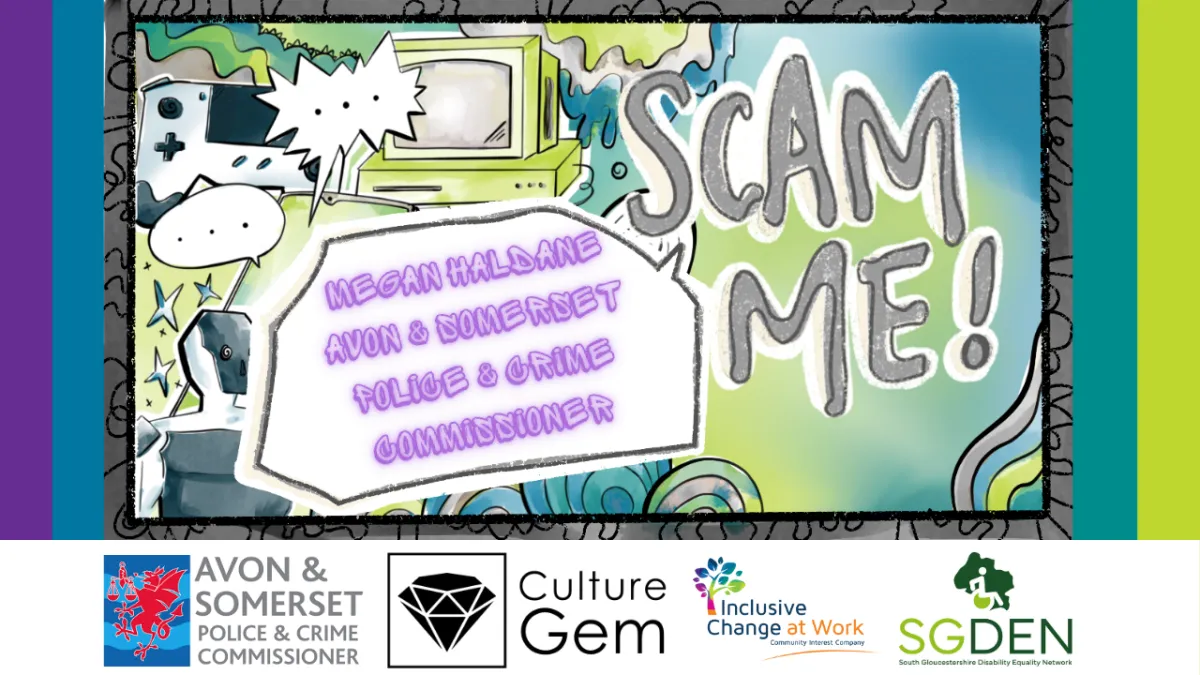
Staying Safe Online, with Megan Haldane
The Problem: Overwhelm, Avoidance, and Safety
One of the most surprising things that emerged from our work with neurodivergent young people was a strong aversion to social media. Not just anxiety about certain apps or platforms, many young people preferred to avoid the online world entirely, rather than navigate it with safety strategies.
And Megan gets it.
“A lot of the tools we’ve created are built for neurotypical users,” she says. “They’re long-winded, jargon-heavy, and overwhelming.”
Her advice? Start small, and start smart.
Creating Confidence: Safe Lurking and Digital Literacy
Megan introduced a concept she calls 'safe lurking'. It means hanging back and observing an online community before participating. No pressure to post, no expectation to comment, just watching, listening, and learning.
“You don’t need to have a full digital presence on day one. You can decide where and how you want to engage.”
Another key strategy: practical, hands-on learning. Instead of presenting privacy settings or AI tools through static PowerPoints or complex guides, we should build 'sandbox' environments - spaces where young people can test settings, explore features, and safely make mistakes.
This kind of immersive, repetition-based learning is especially helpful for neurodivergent users, Megan notes. “Break it, fix it, learn it. That’s how I learn.”
Language Matters: Making Digital Safety Accessible
One recurring theme throughout the episode was how language and format shape access to online safety. Traditional approaches, assemblies, text-heavy leaflets, or 'click here to learn more' PDFs, can unintentionally exclude neurodivergent learners.
We need:
Infographics and visual aids
Role-play scenarios with consequences
Tools that prioritise plain language
Interactive, personalised learning experiences
Better yet, we need to design those tools with neurodivergent people, not just for them.
Peer Mentorship: Learning from Each Other
Megan’s big idea? Peer mentorship.
She’s seen first-hand how effective it can be when neurodivergent young people help each other navigate online spaces.
“Young people don’t always want to learn from adults, they think we’re dinosaurs! But they’ll listen to each other.”
Whether it’s cyber buddies, anti-bullying ambassadors, or digital citizenship schemes, empowering young people to lead change could be the most powerful safety tool we have.
Gaming, Bullying & Reporting
For many neurodivergent youth, gaming is a main social outlet. But it's also a space that’s become a hotbed for scams, bullying, and exploitation.
Megan highlights the challenges law enforcement faces in these spaces:
Platforms often allow anonymous behaviour, making it harder to track offenders.
Threats evolve quickly, especially with the introduction of AI.
Many incidents go unreported, leaving law enforcement and support teams unaware of emerging risks.
“Reporting matters, even if you think it’s small,” Megan says. “It helps us protect hundreds, even thousands, of other people.”
So where should you report?
If someone is in danger: Call 999 (emergency) or 101 (non-emergency)
For scams/fraud: Report to Action Fraud
For platform-based issues: Use the in-app reporting tool
Too overwhelmed? Ask a trusted adult to report on your behalf
And yes, online forms, text-based submissions, and accessible reporting are improving, so you don’t always have to make a phone call.
AI: A Blessing and a Risk
Artificial intelligence is becoming part of our everyday online experience, from recommended videos to predictive text, voice assistants to image filters. So, what does that mean for disabled and neurodivergent users?
The Risks:
Sophisticated scams and impersonations using AI-generated images, video, and audio
Misinformation spread through AI-powered content farms
Over-reliance on tools like ChatGPT, which may replace rather than support cognitive effort
The Benefits:
Enhanced accessibility (speech-to-text, filtered visuals, easier interfaces)
Content moderation to flag harmful messages
Phishing and scam detection through AI-powered alerts
Learning tools that summarise or simplify complex documents
“You can use AI to translate things into easy-read formats,” Megan says. “Just don’t tell it anything you wouldn’t want shared publicly.”
Building Safer Digital Futures
Safety isn’t just about avoiding risk. It’s about resilience - the ability to try, fall, and try again.
Young people should be supported to:
Set digital boundaries (what content and platforms are okay)
Build self-awareness (when to step back)
Develop coping strategies (who to turn to when something goes wrong)
Ask for help, and know that’s not a weakness
And let’s not forget that offline safety and validation are just as important. Some youth may never fully engage online, and that’s okay too.
Careers in Cyber: Megan’s Journey
To wrap up the episode, Megan shared her own path into cyber protection, and it’s not what you’d expect.
She started out in veterinary nursing, working hands-on with animals. But during the pandemic, she re-evaluated what she wanted and transitioned into law enforcement, eventually finding her perfect fit in the Cyber Protect team.
Now she works every day to empower others and make the internet a safer place.
“You don’t need tech qualifications to start. Just curiosity, empathy, and a willingness to learn.”
Her journey is proof that career paths aren’t straight, and that there’s space for everyone in cyber and digital safety, especially neurodivergent people.
Want to learn more?
Listen to Scam Me’ here on YouTube: Learning Inclusive Change
Visit Avon & Somerset Police & Crime Commissioner here: Avon & Somerset Police & Crime Commissioner here
Follow Inclusive Change on LinkedIn: Inclusive Change Ltd - and Facebook: Inclusive Change
And remember, cybersecurity starts with you!
Inclusive Change At Work CiC
Bradbury House
Wheatfield Road
Bradley Stoke
Bristol
BS32 9DB
Companies House: 13271923
ICO registration: ZZB293922
UK register of Learning providers
UKRLP: 10090653
